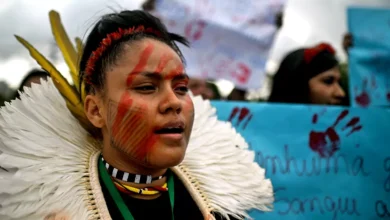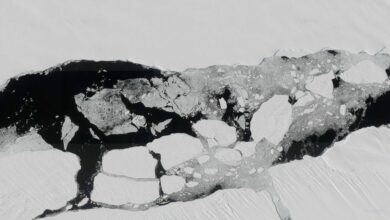The Indian ‘lost tribe’ that wants to move to Israel, even ‘fight Hamas’

Joseph Haokip, an undergraduate student in Manipur, is excited at the thought of going to Israel. He is ready to join the Israeli army to fight Hamas in a war in which Israel’s brutal assault on Gaza has killed more than 26,000 people, mostly women and children.
The 20-year-old and his family have recently returned to their home in the Kangpokpi district of Manipur after five months in the neighbouring state of Mizoram where they had fled when an ethnic conflict broke out in Manipur last year.
“I stayed in a makeshift camp with the other members of the Bnei Menashe community since August last year and have just returned a few days ago. But I want to go to Israel and connect with my lost tribe. I also want to join the [Israeli army] and help them in fighting against Hamas because I belong from that land,” Haokip told Al Jazeera.
Rafael Khiangte, 37, a taxi driver in Aizawl, Mizoram’s capital, wants to move to Israel along with his wife and toddler to connect with his ancestral roots and reunite with his mother.
Khiangte’s mother Sarah Pachuau, 58, relocated to Israel along with her brother in 1993. “I belong from the lost tribe and want to stay with my mother and also provide a better future to my daughter … I want to reunite with the land from where we got separated over 2,700 years ago,” Khiangte said.
Khiangte and Haokip are among about 5,000 people living in the Indian states of Manipur and Mizoram who believe they are the descendants of the Manasseh, one of the biblical lost tribes of Israel exiled in 722 BC by Assyrian conquerors and commonly referred to as the Bnei Menashe community, or Hebrew for the children of Manasseh, the first son of Joseph.
PC Biaksiama, a Christian researcher based in Aizawl, told Al Jazeera that several members from the Chin, Kuki and Mizo ethnic groups believe themselves to be the descendants of the lost tribes of Israel.
During the ancient times, Israel was divided into two kingdoms. The southern one was known as the Kingdom of Judah and mostly comprised the tribes of Judah and Benjamin, while the northern part was made up of the so-called 10 tribes, he said.
The Assyrians invaded the northern kingdom and exiled the tribes living there. Several of them fled and settled in different parts of the world. According to the Bnei Menashe, they were dispersed to China from where they ended up in northeast India.In India, claims of being a descendant of the lost tribes began in 1951 when a tribal leader, Mela Chala, had a dream that his ancient homeland was Israel. Since then, many people in northeast India, mostly in the states of Manipur and Mizoram, have embraced Judaism and its customs and traditions.










